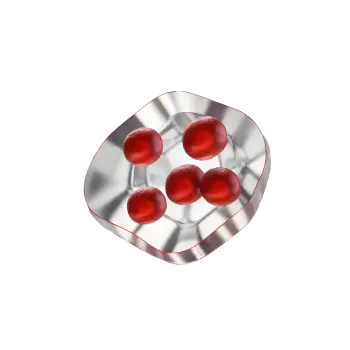What is iron?
Iron is an important mineral found in the human body. It plays a central role in the production of hemoglobin, a protein that carries oxygen from the lungs to other parts of the body. Hemoglobin is important to ensure that the body's tissues receive enough oxygen. Iron is also part of many other enzymes and proteins in the body.
That is why it is important to get enough iron through the diet, because a lack of iron can lead to anemia, a disease in which the body does not have enough hemoglobin and thus does not get enough oxygen. Iron deficiency can also lead to weakness, fatigue and reduced cognitive function.
What can a low value of iron mean?
A low value of iron in the blood can mean an inflammation or an iron deficiency anaemia. This means that the body does not have enough iron to produce enough hemoglobin, which leads to a decrease in the blood's oxygen uptake.
What can a high value of iron mean?
A high value of iron in the blood can mean iron excess, which is an excessive formation of red blood cells, (hemochromatosis), or acute liver damage.
Symptoms of iron deficiency anemia (blood deficiency)
Anemia can cause a variety of symptoms, including fatigue, decreased concentration, dizziness, shortness of breath, palpitations, headaches, and ringing in the ears. The symptoms depend on the severity of the anemia and can vary from person to person. The body can adapt to a slowly increasing anemia, which can lead to mild symptoms despite severe anemia.


































